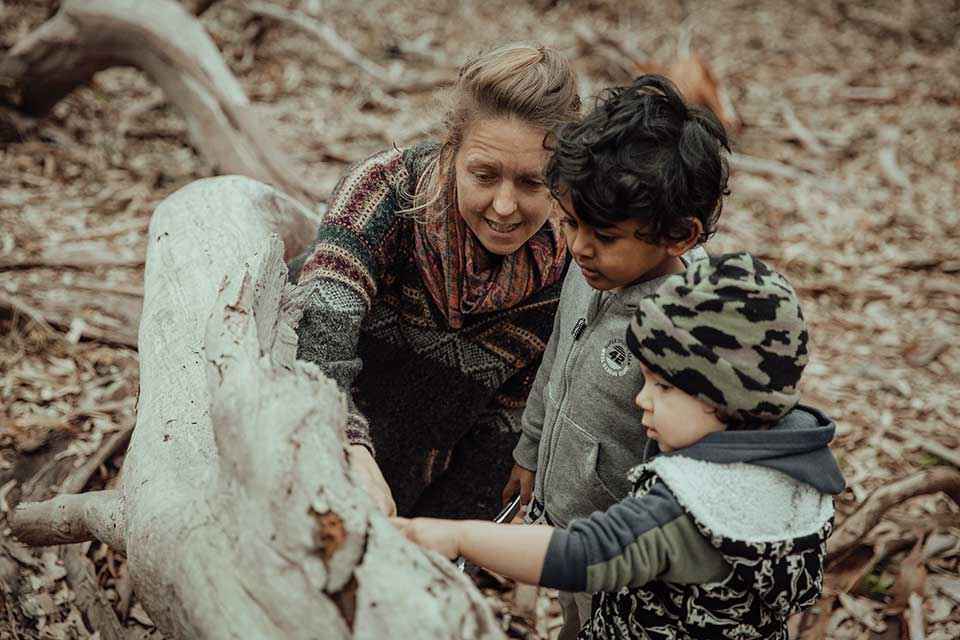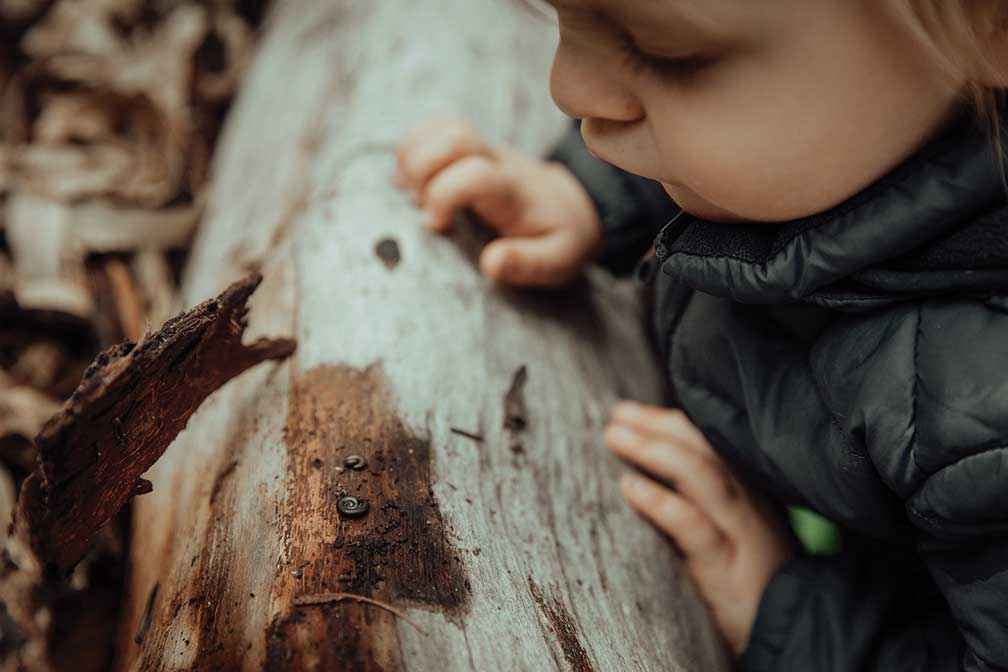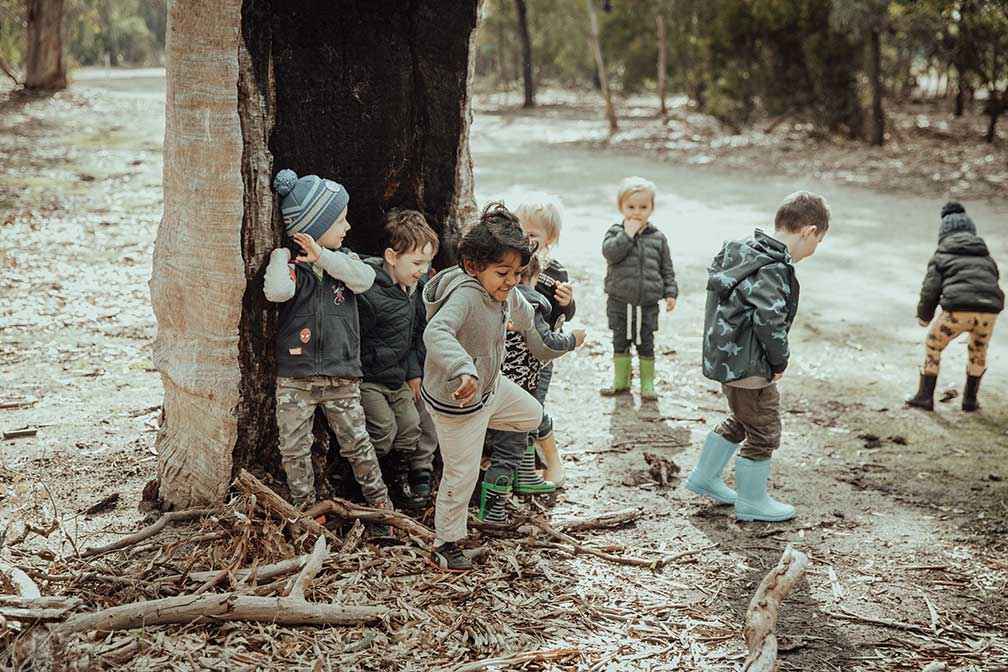Victorian Landcare Magazine - Spring 2022, Issue 85

Children are born with a sense of wonder and an affinity for nature. Properly cultivated, these values can mature into ecological literacy, and eventually into sustainable patterns of living. Zenobia Barlow, environmental educator.
There are many different models for bush playgroups, bush kinder and even forest school in Australia. They can run in all sorts of diverse environments including bushland, the beach, parkland, reserves and even near creeks.
Some sessions are run informally by groups of parents, keen for their children to spend more time in nature. However, at facilitated bush programs, children attend a slightly more structured program that is led by a trained facilitator.

Above: It’s amazing what you can discover under a strip of bark.
As the children eagerly arrive at bush playgroup each week, the facilitator greets them and gently invites them to investigate the activities they have prepared that week. There’s usually a different theme that focuses on acknowledging and learning about important environmental days, significant dates for First Nations People and connecting to our place – the land, the animals, plants, and the seasons. In Victoria, we talk about the seasons of the Kulin Nation which encourages children to stop, listen, connect, and notice the changes occurring at their bush playgroup site each week.
Some weeks may involve bringing out tools or having a campfire and making damper or whittling a bow and arrow at forest school.
Children learn about how to stay safe around snakes in summer, while in winter they enjoy splashing in puddles and getting muddy as they discover worm and snail trails along the paths. These sorts of experiences help children to become more resilient adults.
The freedom to take risks
There are no walls in the bush, so the children are free to explore, play and get messy and muddy. The children create, build, investigate and learn outdoors, at their own pace through hands on, experiential learning. The facilitated programs are based on values of respectful interactions, with each other and the environment. It’s in this place of deep connection with the natural world that learning takes place.
Parents are keen to eliminate risk from childhood, but the philosophy of bush programs is to help children improve their confidence and develop new skills, as well as help them evaluate and navigate risk. Bush playgroups run in all types of weather
I’ve certainly found that outdoor playgroups have had a benefit on my own mental health as well as improving my children’s confidence, social skills and learning.
Nature play improves understanding of STEM
A recent Deakin University study that ran from 2015-20 found that pre-schoolers who spend time in nature-based programs, such as bush kinder, enter primary school age with a stronger understanding of science, technology, engineering, and maths (STEM).
The study also found children who spent time outdoors were more confident and inquisitive when exploring the natural world around them.
Tips for running outdoor programs for youngsters
There are a few important things to consider before running outdoor programs. A site needs to be found that’s accessible, safe and that offers a diversity of activities in nature.
The agencies that oversee the park or reserve must approve it to be used for a bush playgroup program. It can take many months to apply for and finalise permits. It’s important to work with local rangers and councils, so they are engaged and on board. Most agencies are keen to support projects aimed at raising a generation of nature loving, environmentally aware children who will grow up to be advocates passionate about caring for the environment.

Above: Children are encouraged to play freely in all weathers – the right clothing is important.
Learning about and acknowledging how nature play activities may impact on the environment is essential. Sometimes the activities that connect families to nature may actually harm the environment. Cubby building, rock stacking, digging and moving logs can change the ecosystem and damage flora and fauna habitat. Having an environment impact policy is critical for any bush playgroup, bush kindergarten or forest school activity.
The other important factor for getting kids outdoors is clothing. Australia is blessed with relatively mild winters. Children dressed warmly and with waterproof overalls and gumboots are ready for outdoor play in winter. In summer hats, sunscreen, seeking shade and staying hydrated are just as important.
So, no matter what the weather is, all families can get outdoors and connect to their local parks and green spaces. By learning about the local plants and wildlife, connecting to our First Nations culture and embedding a love for the outdoors in our children they will grow up to love and care for the environment, a bit better than we have.
Melinda Bito is the founder and director of Eco Explorers – a team of early childhood, environmental professionals who develop and run nature-based bush programs for children. For more information go to www.ecoexplorers.com.au